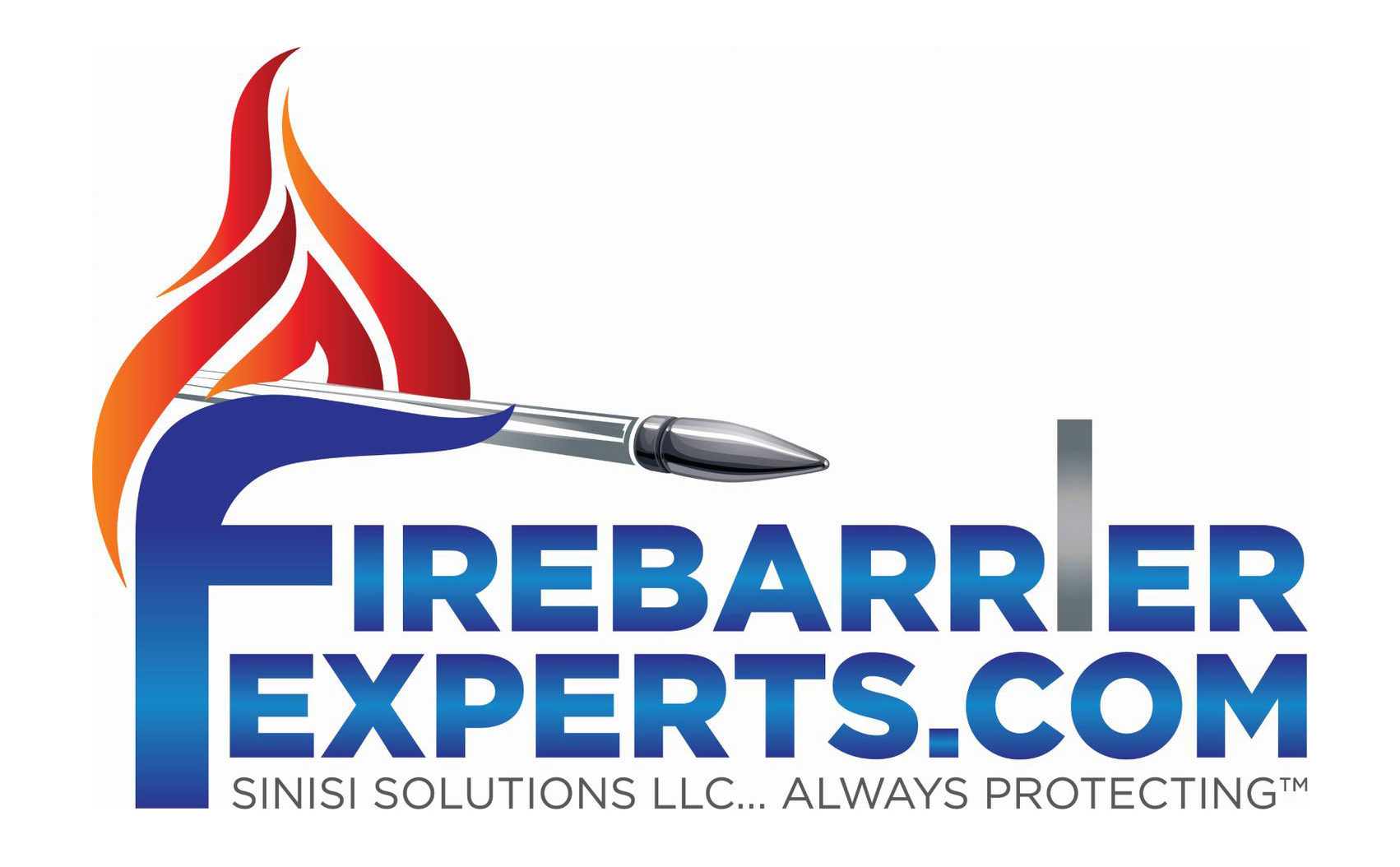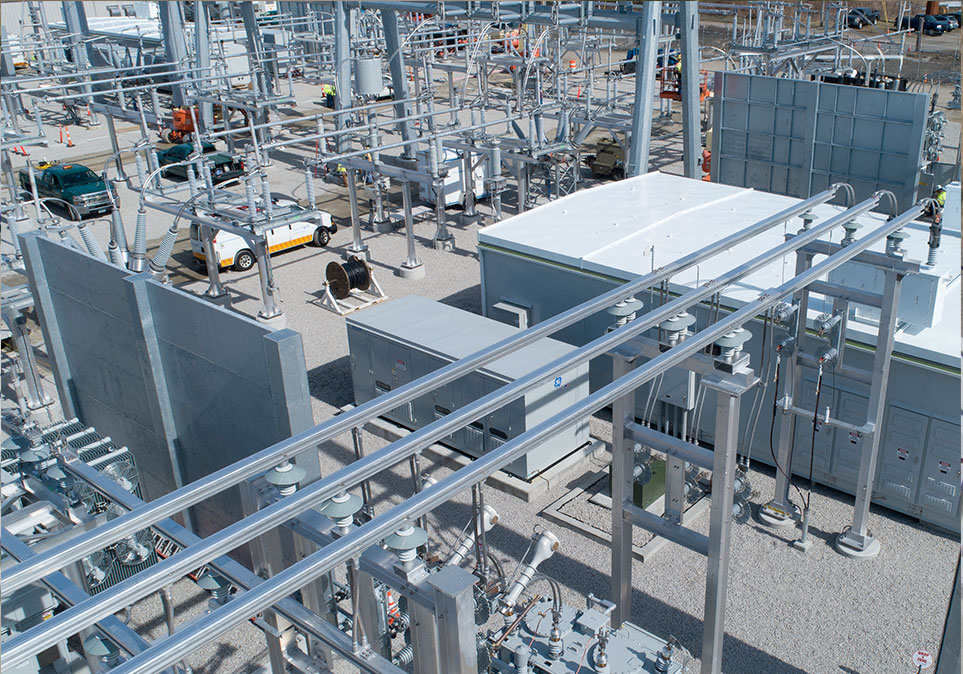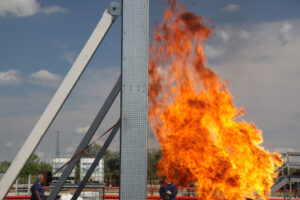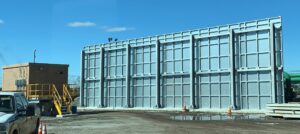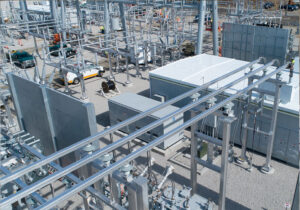Facility owners need to have a better fire protection plan to secure not only the structures and equipment, but also the lives of people and the property inside it. That is why almost all industries have their firms installed with fire barriers and fire partitions to prevent the rapid spread of fire in the event of equipment failure like a transformer explosion.
However, most people tend to interchange the two terms; fire barrier and fire partition. Getting the difference between the two terms is essential because it will ensure that you understand the topic much better. So, before we go into details, let us first find out what we mean by the terms fire barrier and fire partition.
Fire Barrier vs. Fire Partition
Both terms get used when referring to fire management systems and passive smoke. However, the International Building Code (IBC) differentiates the two using the number of fire-resistance ratings accorded to each of them.
When it comes to a barrier, the IBC requires that it must have no less than one-hour fire-resistance rating. So, we can say that a fire barrier refers to a structure with a minimum one-hour fire-resistance score. However, rating requirements for this can extend to four hours rating depending on the type occupancy of a particular building.
On the other hand, a partition must have a fire-resistance rating of no less than thirty minutes. The minimum fire resistance requirement should also be at least one hour, depending on the type of occupancy of the structure. Familiar places with fire partitions are shopping malls, hotels, dormitories, and other multi-dwelling units.
Different Types Of Firewalls
The primary purpose of a firewall is to restrict the rapid spread of fire and smoke within a single building. The firewall divides a building into different sections. During construction, the walls that separate one room from another should have fire partitions and fire barriers installed. According to IBC, there should be three types of firewalls in a structure.
Regular firewall: This one separates structures, buildings, or transformers to restrict the spread of fire.
Fire barrier walls: This is a type of fire-rated wall assembly. However, the wall is not self-sufficient because it does not extend below the structure or through the roof, meaning that fire and smoke can quickly spread through these two areas.
High challenge firewalls: This type of wall separates different occupancies. It protects exit stair enclosures by limiting the fire size area.
The Most Common Barriers
While we have a variety of barriers to protect structures against fire and smoke, the most common ones include the following:
Firewall: This is a type of wall that resists fire from the exterior of the building. It contains the flames in the area of origin to ensure that it does not spread. The firewall rating will determine how long it can hold fire.
Fire Partition: These are walls inside a building that subdivide specific rooms and floors. The vertical assembly partitions extend from the floor up to the ceiling.
Smoke Barrier: It is a type of fire barrier that restricts smoke from spreading. The smoke barriers are either horizontal or vertical. Regardless of the amount of fire, the minimum resistance of the smoke barrier is usually one hour.
Conclusion
Fire barriers and fire partitions are beneficial to nearly all facilities and, more especially, to those structures with many occupants. It is also critical for those firms that deal with volatile materials capable of spreading fire and causing an explosion. It is a very cost effective and environmentally friendly solution to meet insurance requirements and ensure business continuity in the even of an incident. You can install a fire barrier and partition when building the facility, or experts can set them up after the construction is complete. For more information on fire barriers and how they can help your setup, feel free to visit https://firebarrierexperts.com.
Sinisi Solutions
75 Main St,
Manasquan, NJ 08736
732-232-2100
Social Accounts:
https://www.facebook.com/pages/category/Software-Company/Sinisi-Solutions-LLC-758965997617515/
https://twitter.com/SinisiSolutions
